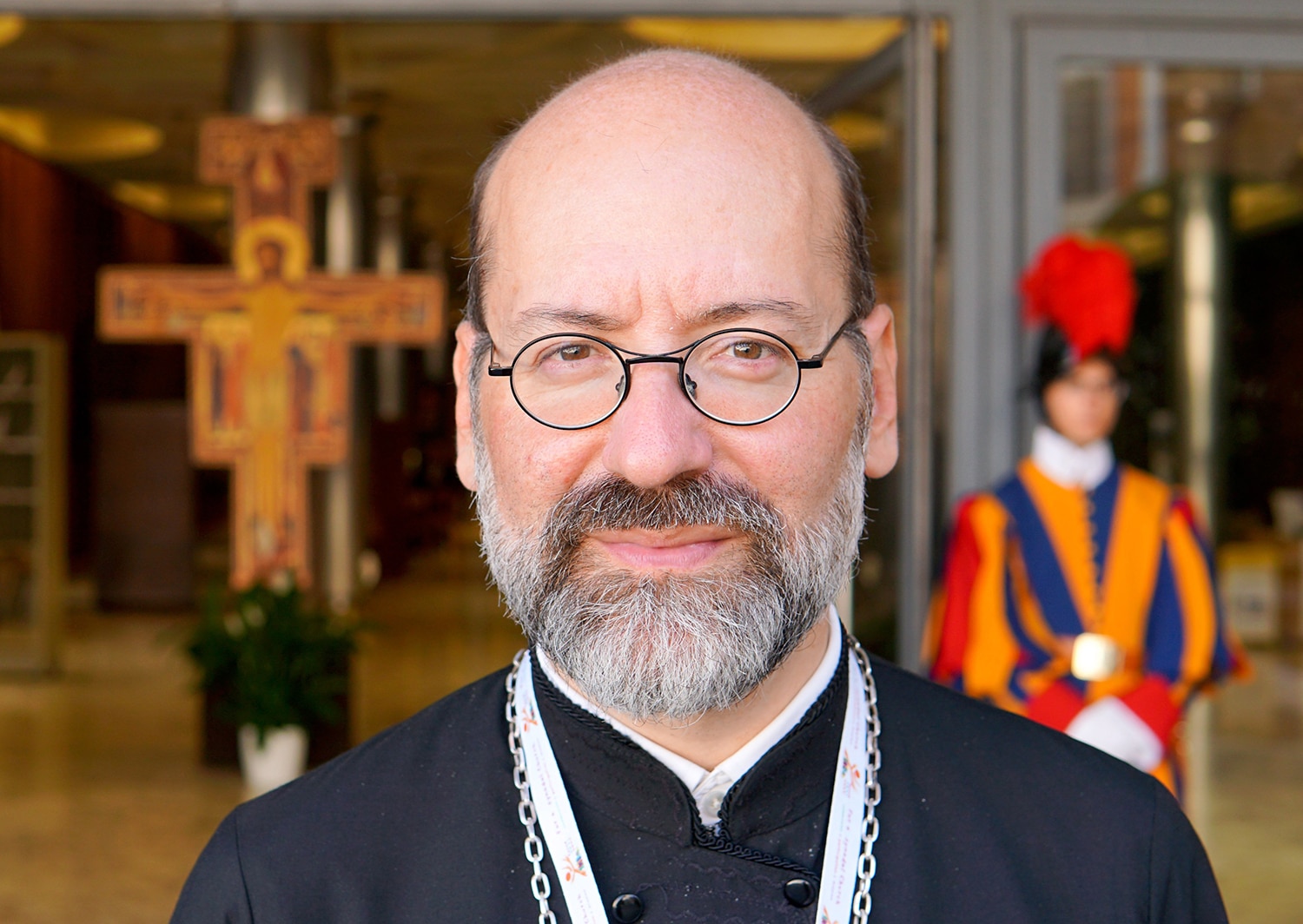- Feb 5, 2002
- 166,633
- 56,266
- Country
- United States
- Faith
- Catholic
- Marital Status
- Married
- Politics
- US-Others
VATICAN CITY (CNS) — Seated among Catholics cardinals, bishops, priests, religious sisters and lay Catholic leaders, 12 representatives from other Christian communities are listening and weighing in on discussions about the future of the Catholic Church.
“Fraternal delegates,” as they are called in the Vatican’s list of participants in the assembly of the Synod of Bishops, have been present in previous synods, yet at the synod on synodality these representatives from across Christianity are thrust into heart of a global conversation about how a church different from their own can better listen and speak to its members.
Catholic News Service spoke with several of the fraternal delegates during the first two weeks of the Oct. 4-29 Vatican meeting, with many expressing both surprise at the Catholic Church’s willingness to experiment with practices more typical of other Christian communities and hope that its impact will extend beyond Rome.
“I think the Roman Catholic Church is trying to learn from the experience of other Christian churches, and this is I think the point of why they have invited us to participate in this meeting, not only as observers but also as people to whom they are giving the right to speak and share their experiences,” Orthodox Metropolitan Job of Pisidia, a representative of the Ecumenical Patriarchate of Constantinople, told CNS.
The metropolitan addressed the synod assembly Oct. 9 and explained that the understanding of a synod in the Orthodox Church differs greatly from what Pope Francis is proposing, since an Orthodox synod makes final decisions and “implies exclusively an assembly of bishops.” The Catholic Church’s Synod on Synodality, where non-bishops are voting members, is more like the consultative clergy-laity meetings common in the Orthodox Church, conducted before final decisions are taken by a group of bishops, he said.
Continued below.

 www.oursundayvisitor.com
www.oursundayvisitor.com
“Fraternal delegates,” as they are called in the Vatican’s list of participants in the assembly of the Synod of Bishops, have been present in previous synods, yet at the synod on synodality these representatives from across Christianity are thrust into heart of a global conversation about how a church different from their own can better listen and speak to its members.
Catholic News Service spoke with several of the fraternal delegates during the first two weeks of the Oct. 4-29 Vatican meeting, with many expressing both surprise at the Catholic Church’s willingness to experiment with practices more typical of other Christian communities and hope that its impact will extend beyond Rome.
“I think the Roman Catholic Church is trying to learn from the experience of other Christian churches, and this is I think the point of why they have invited us to participate in this meeting, not only as observers but also as people to whom they are giving the right to speak and share their experiences,” Orthodox Metropolitan Job of Pisidia, a representative of the Ecumenical Patriarchate of Constantinople, told CNS.
The metropolitan addressed the synod assembly Oct. 9 and explained that the understanding of a synod in the Orthodox Church differs greatly from what Pope Francis is proposing, since an Orthodox synod makes final decisions and “implies exclusively an assembly of bishops.” The Catholic Church’s Synod on Synodality, where non-bishops are voting members, is more like the consultative clergy-laity meetings common in the Orthodox Church, conducted before final decisions are taken by a group of bishops, he said.
Continued below.

Ripple effect: Delegates discuss synod impact beyond Catholicism
"Fraternal delegates," as they are called in the Vatican's list of participants in the assembly of the Synod of Bishops, have been present in previous synods, yet at the Synod on Synodality these representatives from across Christianity are thrust into heart of a global conversation about how a...
 www.oursundayvisitor.com
www.oursundayvisitor.com
